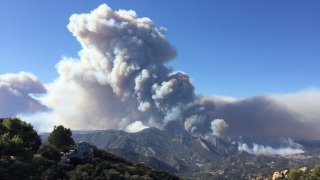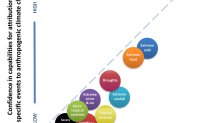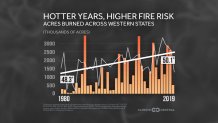
How climate change is affecting our western wildfires is a huge issue this presidential election. But what does the science really show?
Is it only climate change? Are there other factors creating these massively destructive and deadly wildfires? Meteorologist Anthony Yanez explores the issue.
The video above only scratches the surface of the problems we face on the West Coast regarding wildfires, and the issues aren't easy to solve.
If you only address climate change policy you'll be missing the problem of land management. And if you create policies for clearing the fuel you'll be ignoring what causes most of our fires -- people.
Let's first look at what we know about climate change and wildfires. It may surprise you to hear that our understanding of the effects and confidence in attributing climate change to wildfires is low. This statement surprises people because of what we hear on the news.
Scientists will look at individual fires and the role climate change plays on that fire. Is climate change responsible for a fire that starts from arson or even a celebration where the people use small explosives to start the fire by accident? Is climate change responsible for a fire that turns into an inferno because the past 50 years every fire that started in the area was quickly put out and now there is an abundance of fuel?
One can also look at how non-native grass is spreading fires and we now live in areas that throughout history have always burned. And there are fires started by power lines. These issues are why you see wildfires placed at the bottom of the image below.

This image is showing how difficult it is to attribute individual wildfires to climate change. There are too many variables.
Even with this said we know heat and humidity affect every fire that starts. Climate Central shows a correlation of warmer temperatures leading to more acres burned across western states.

The video below is a more in-depth story exploring fires and climate change. I traveled to Missoula, Montana, and visited the U.S. Forest Service Fire Sciences Lab. They have a team of experts that study wildfires.
If you have any questions feel free to reach out on Facebook, Twitter or Instagram.

